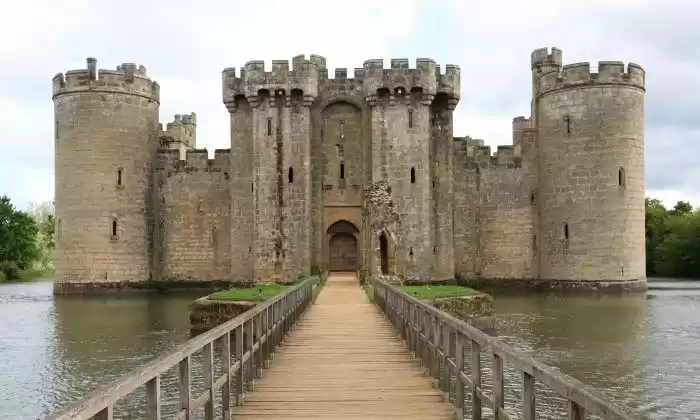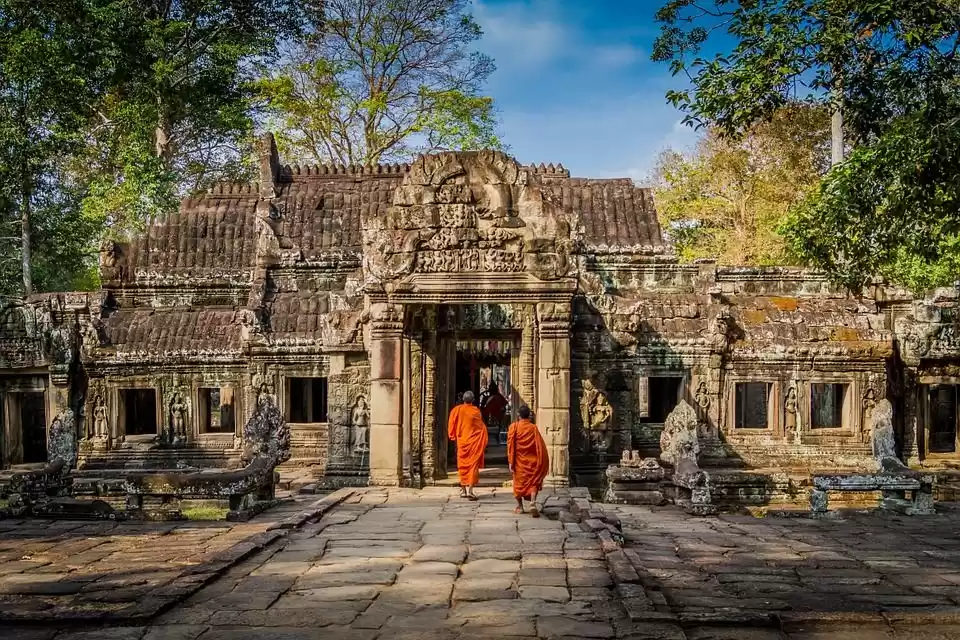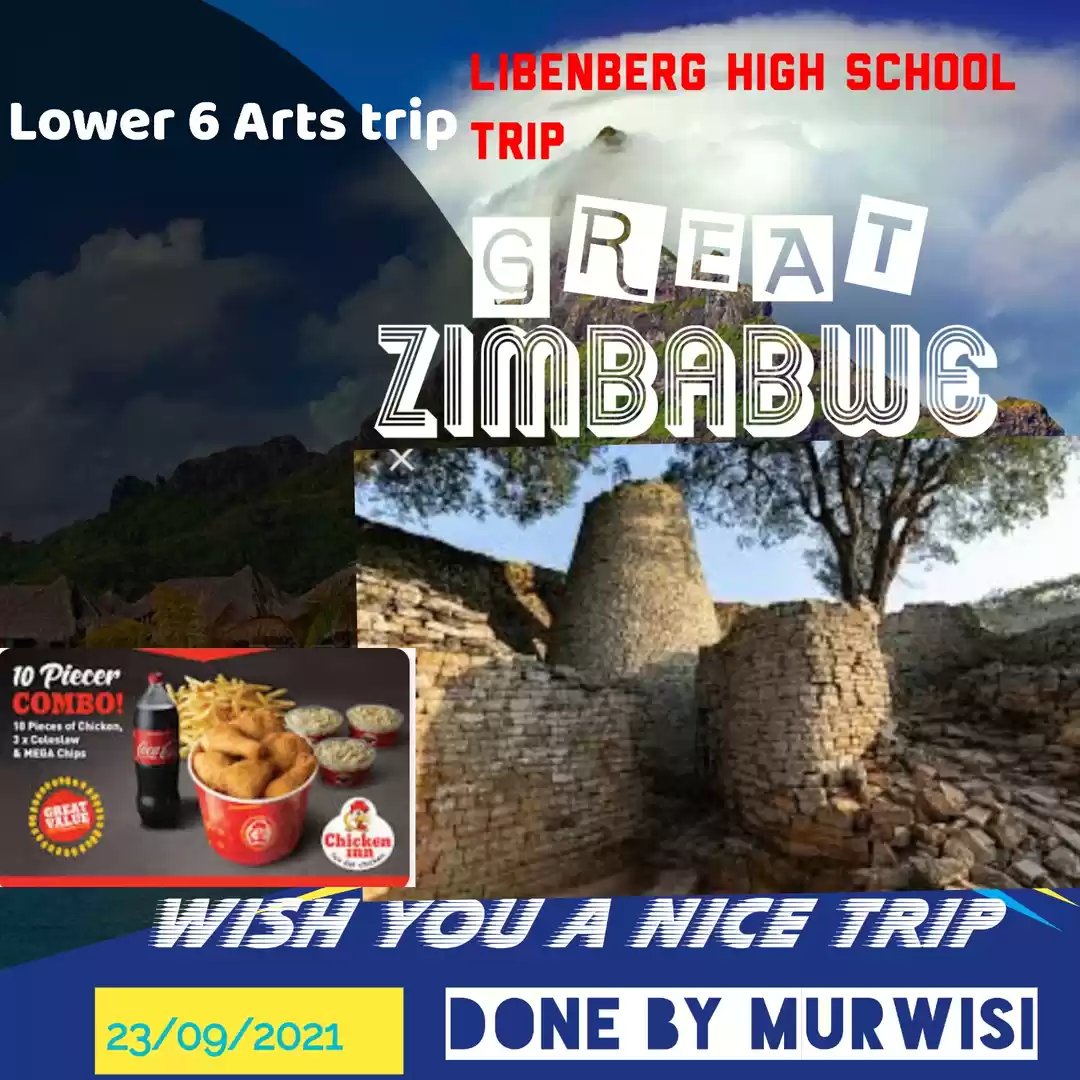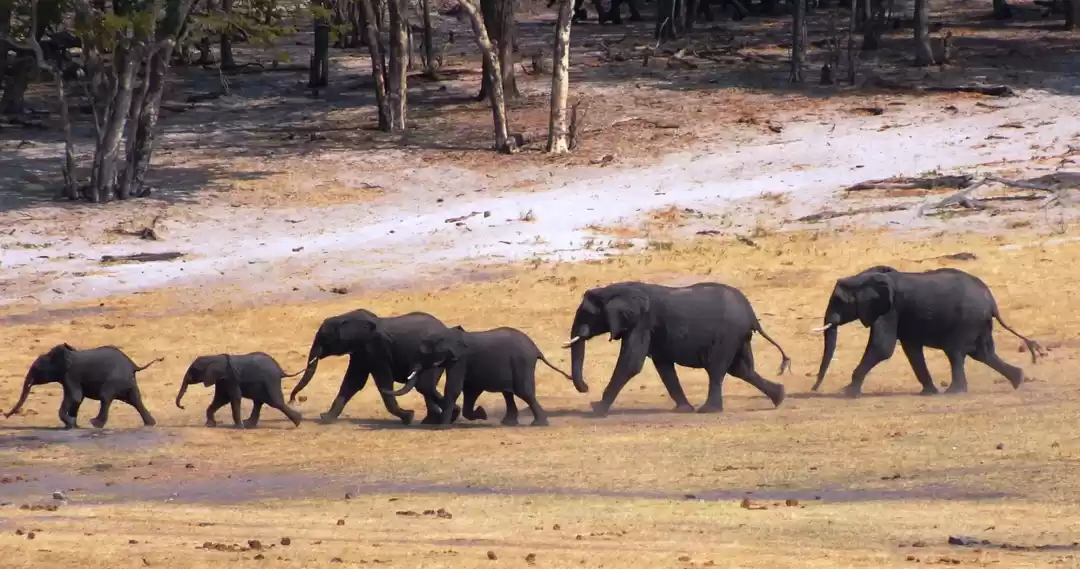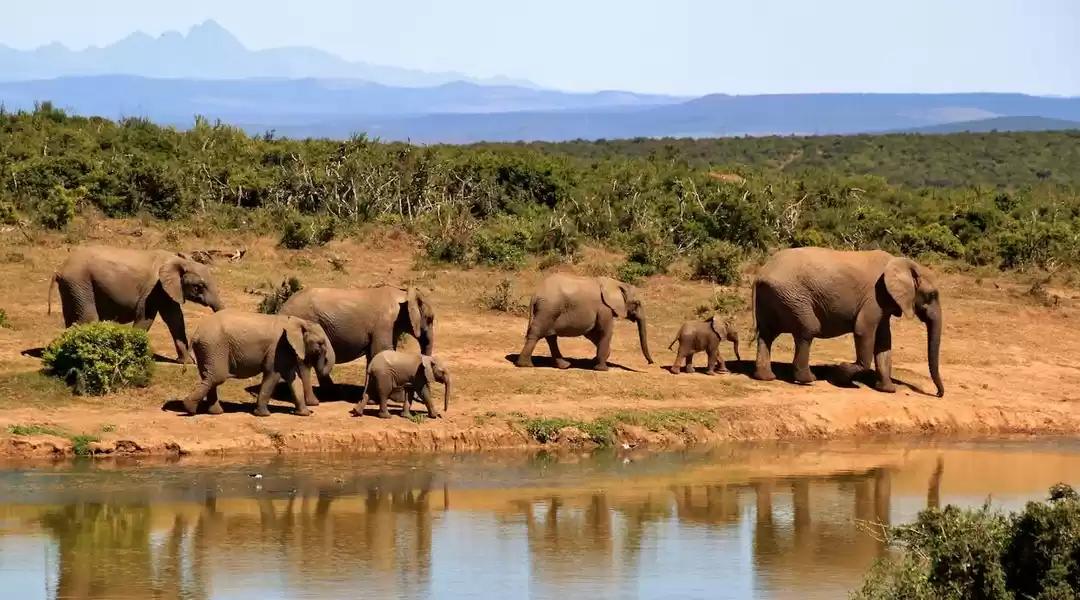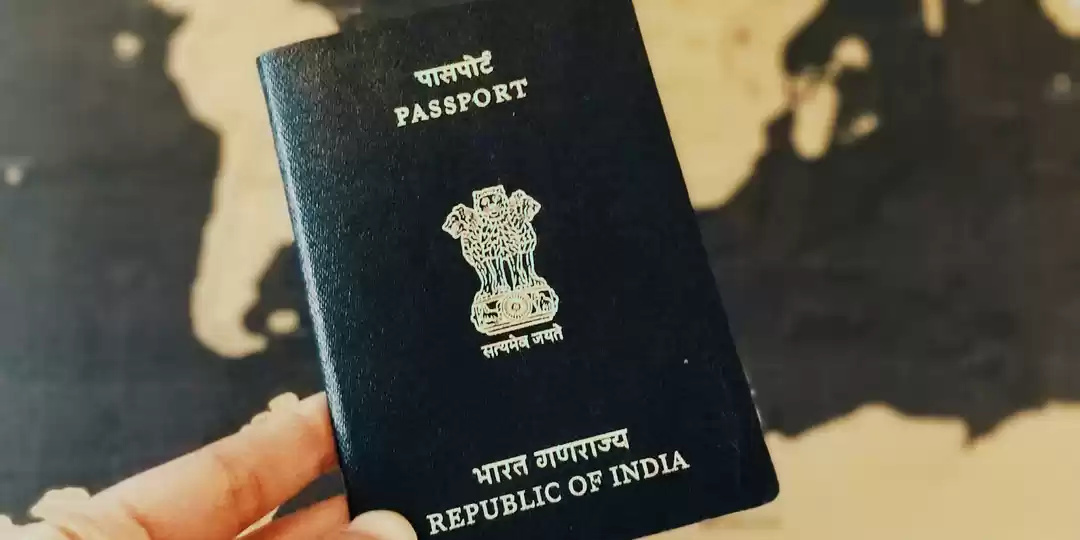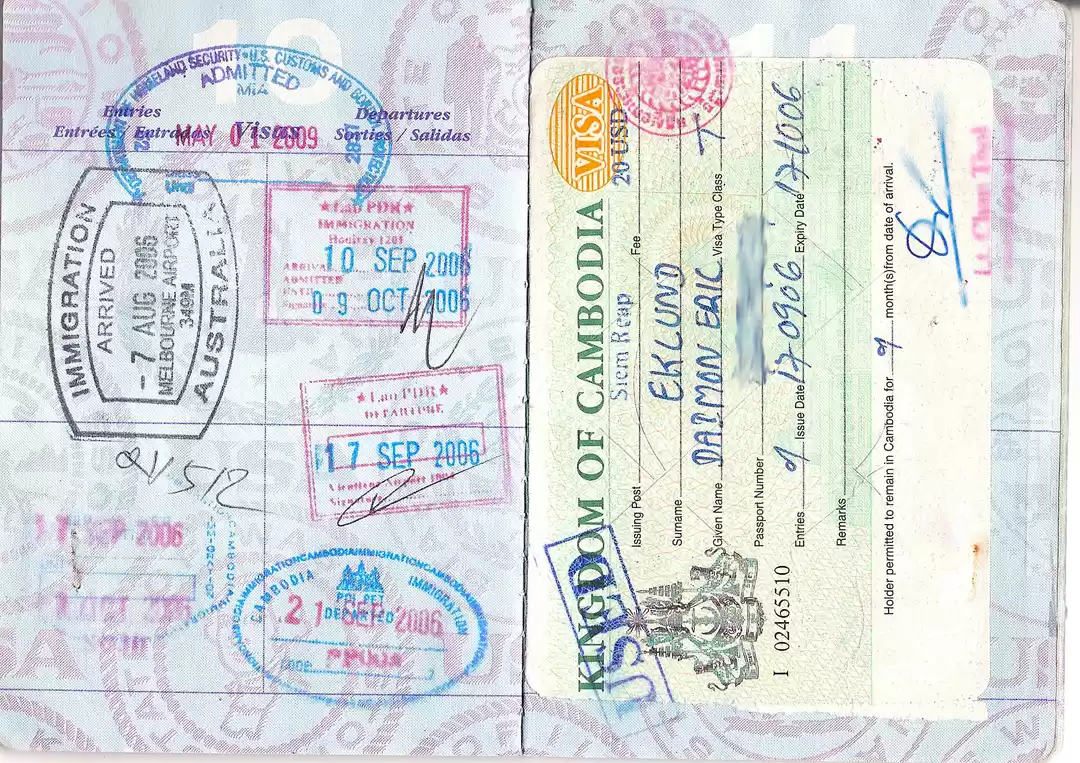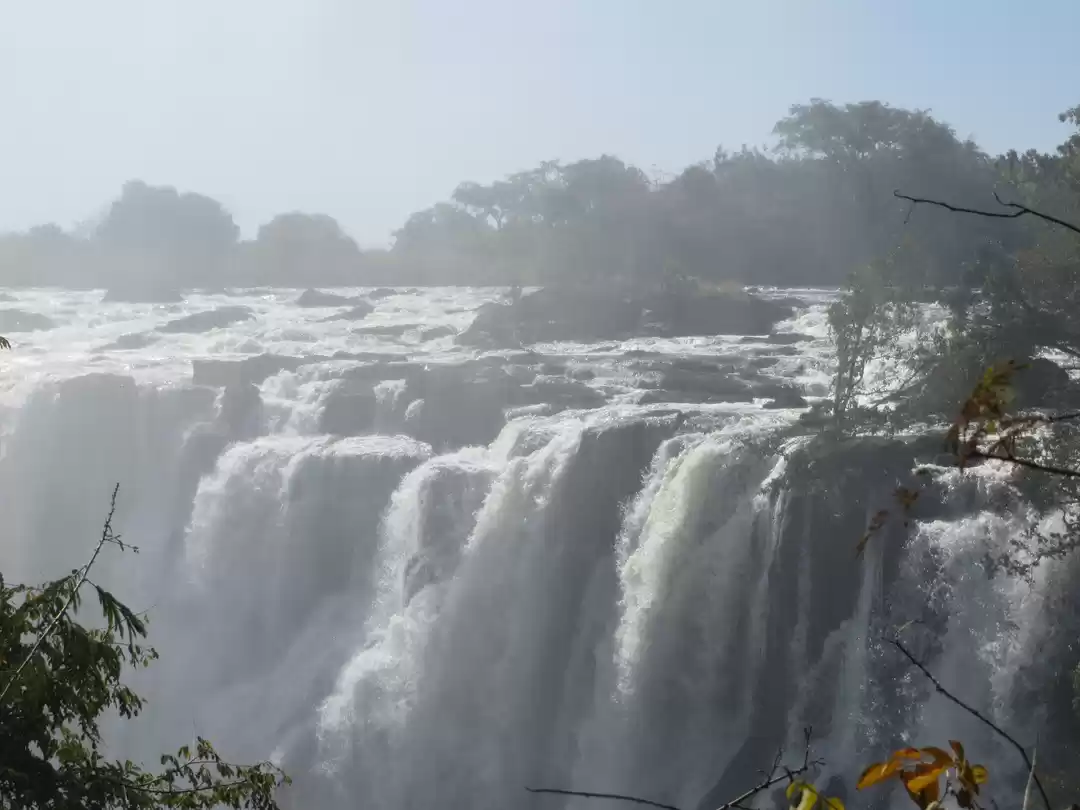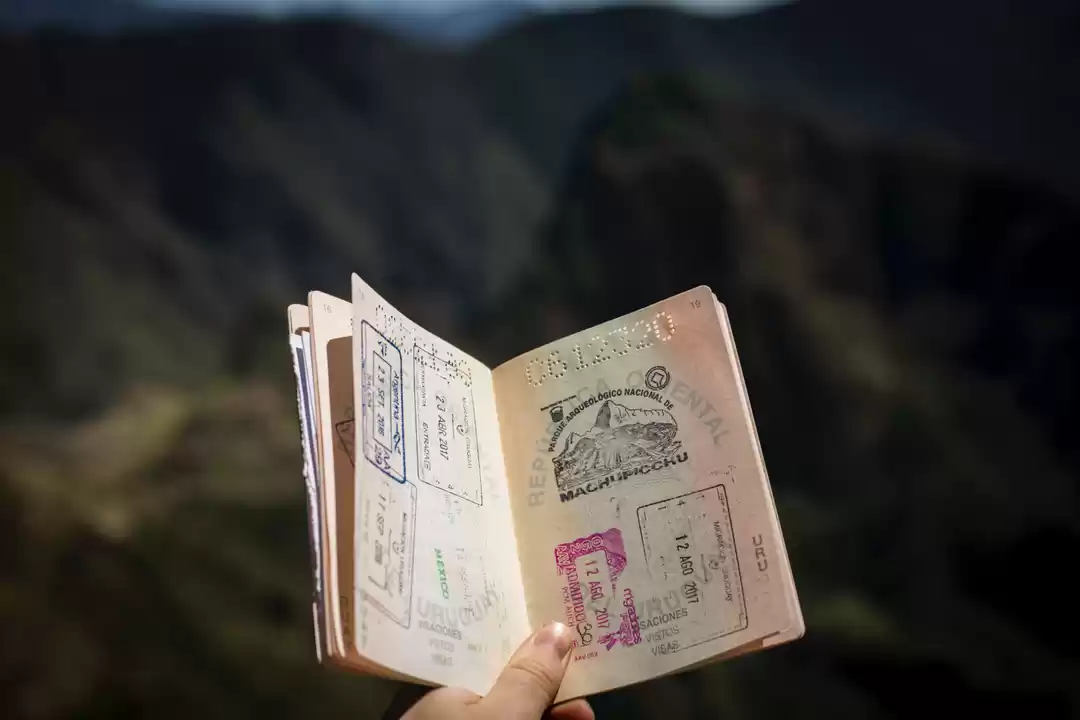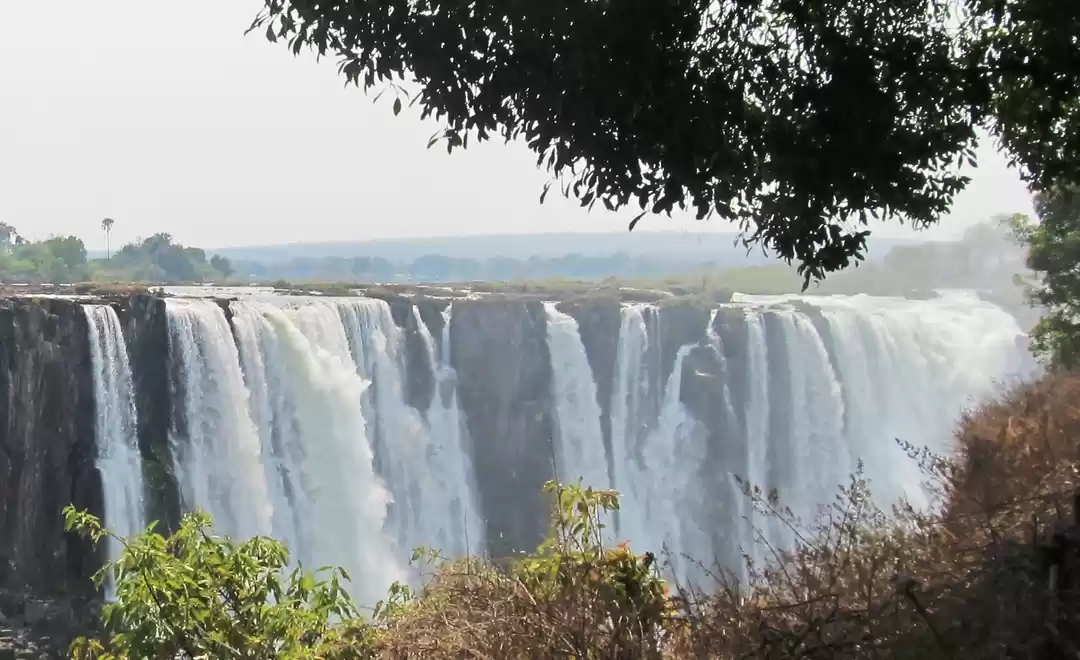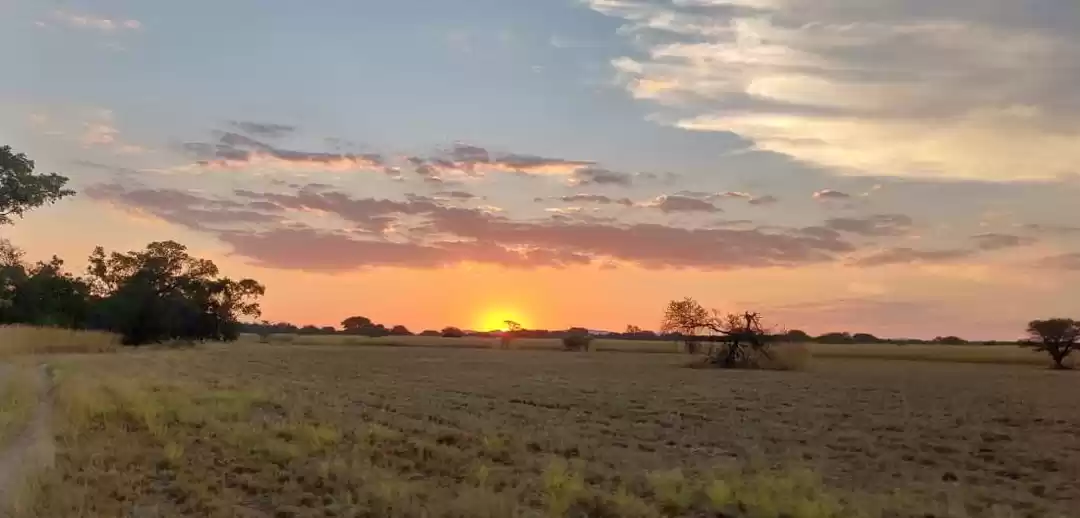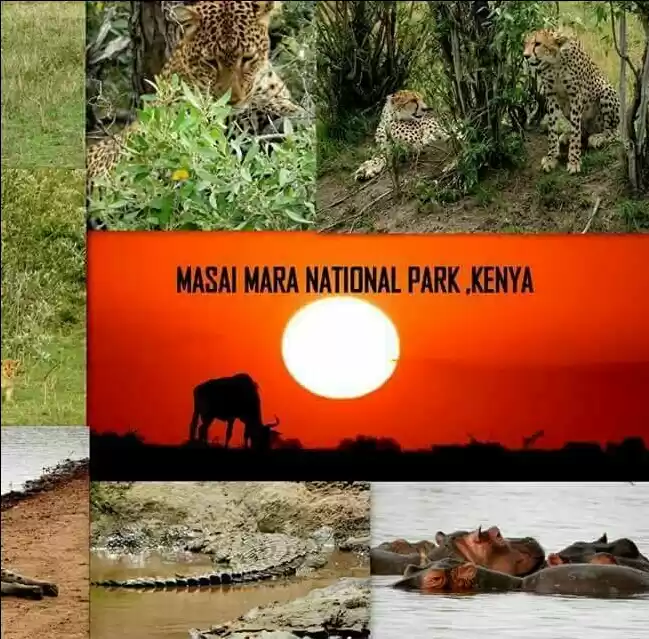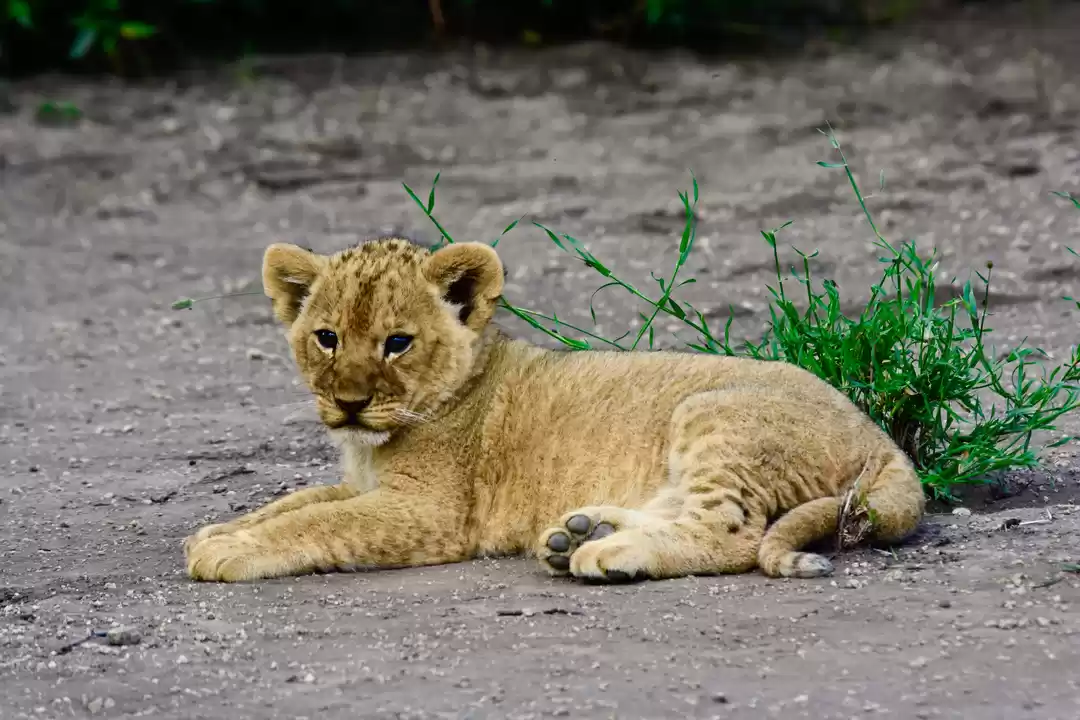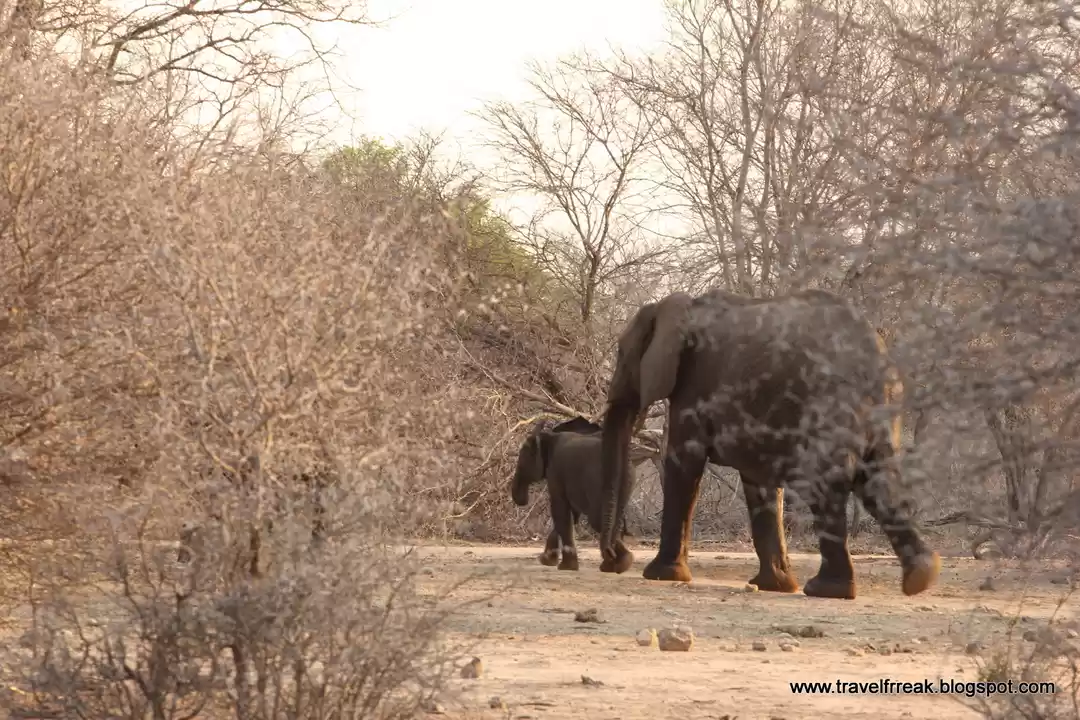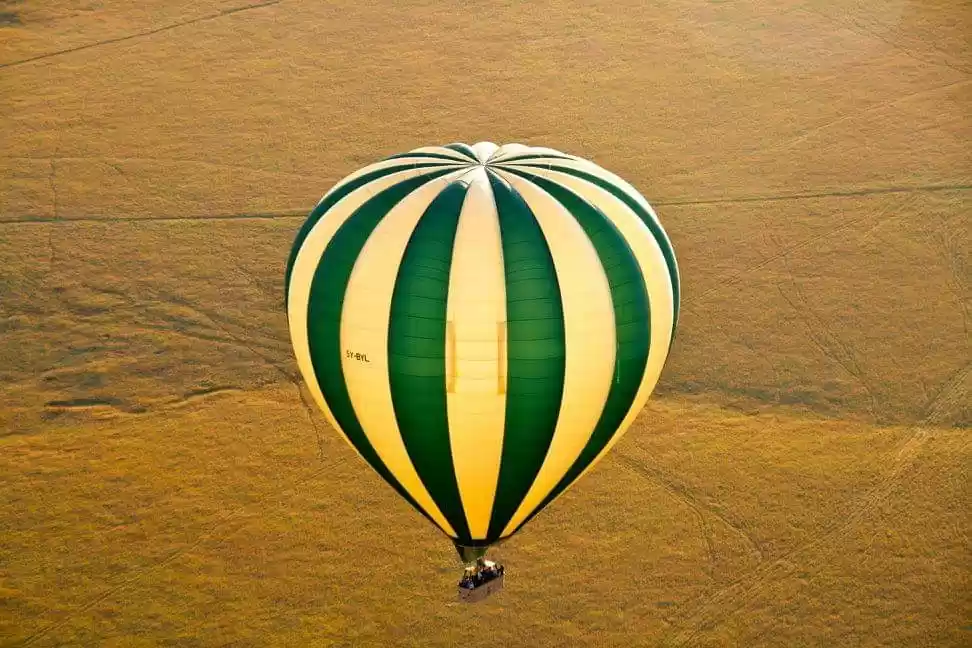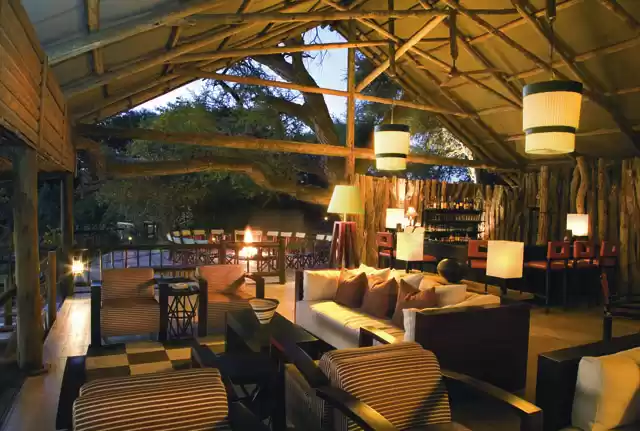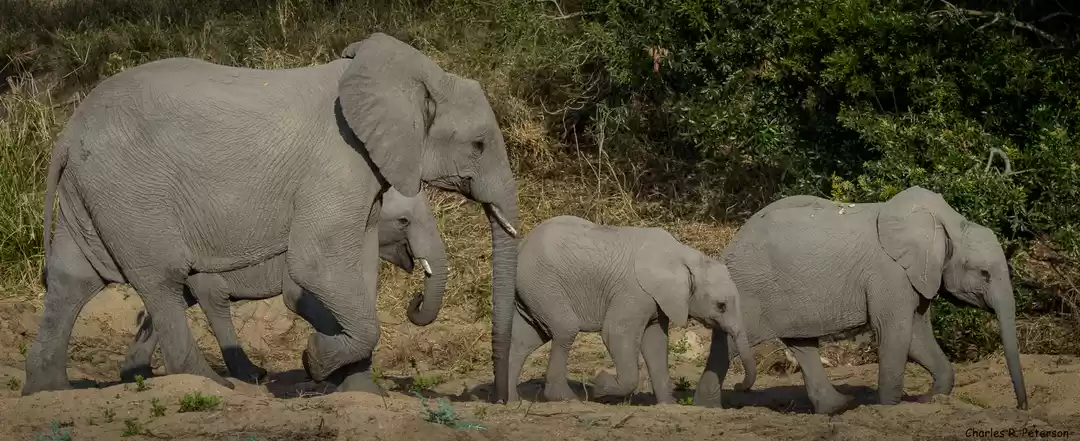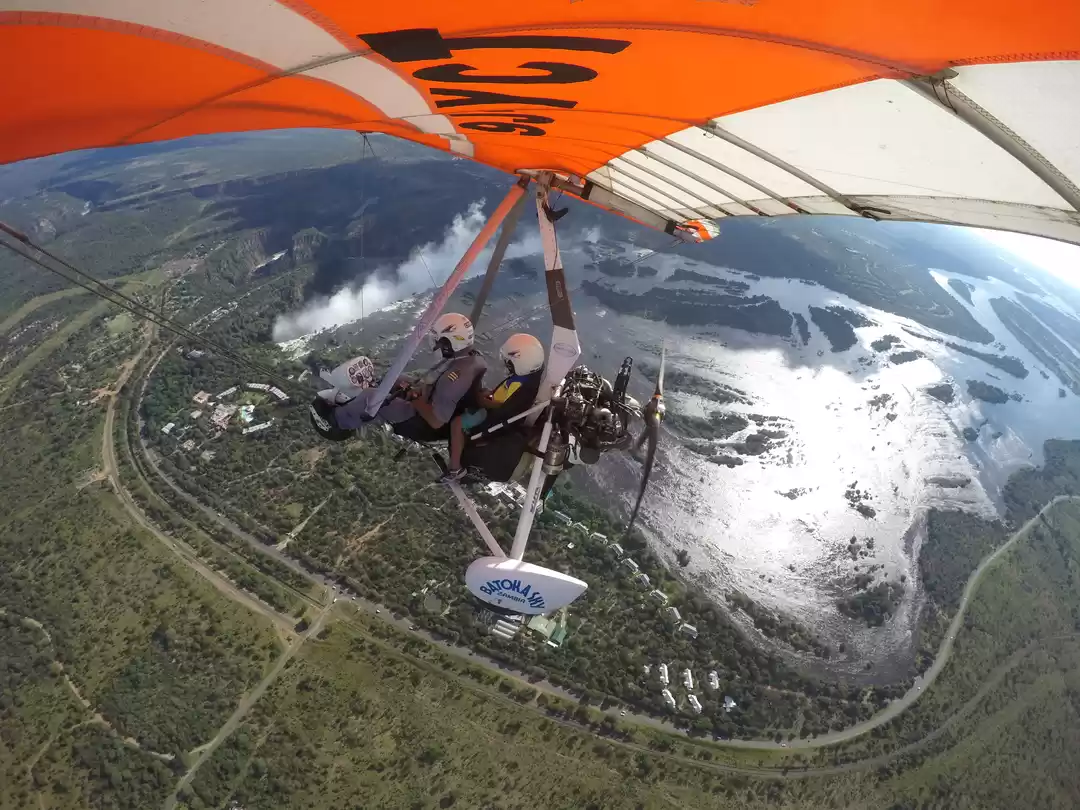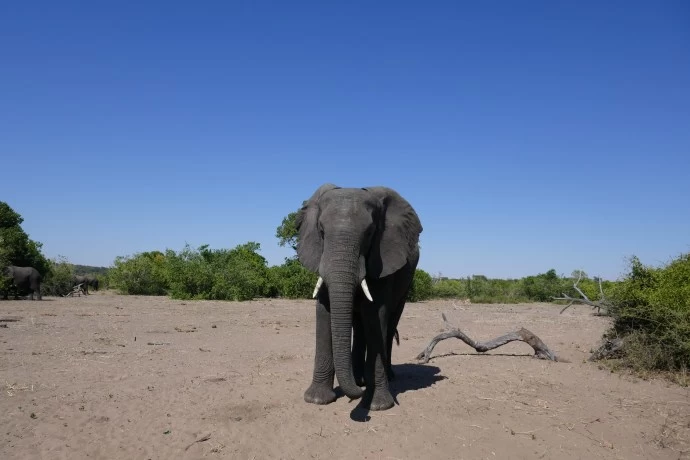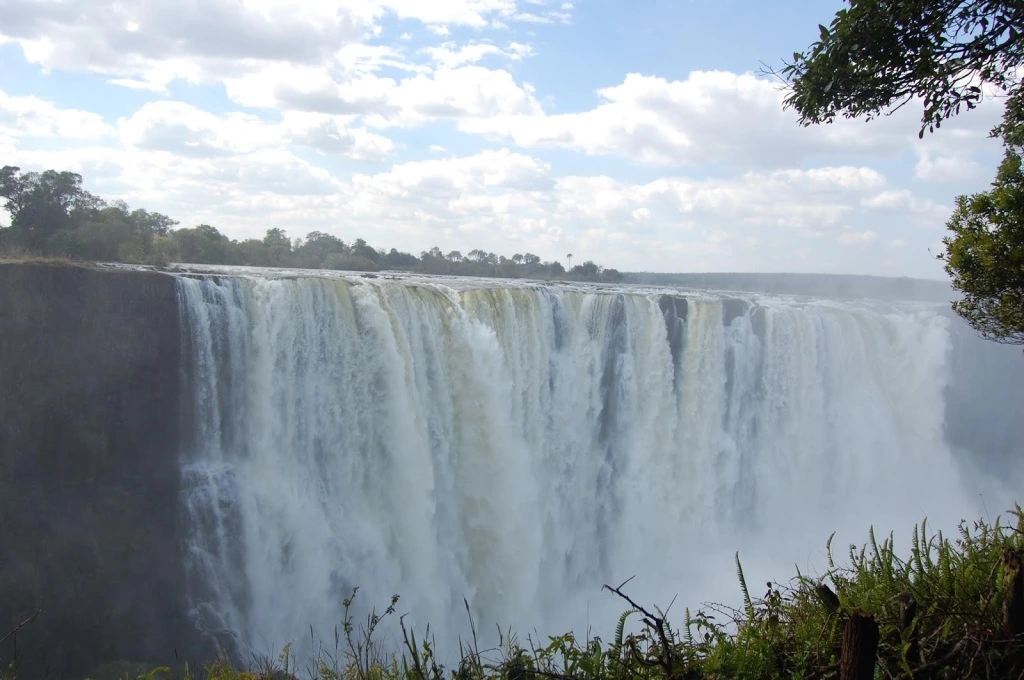
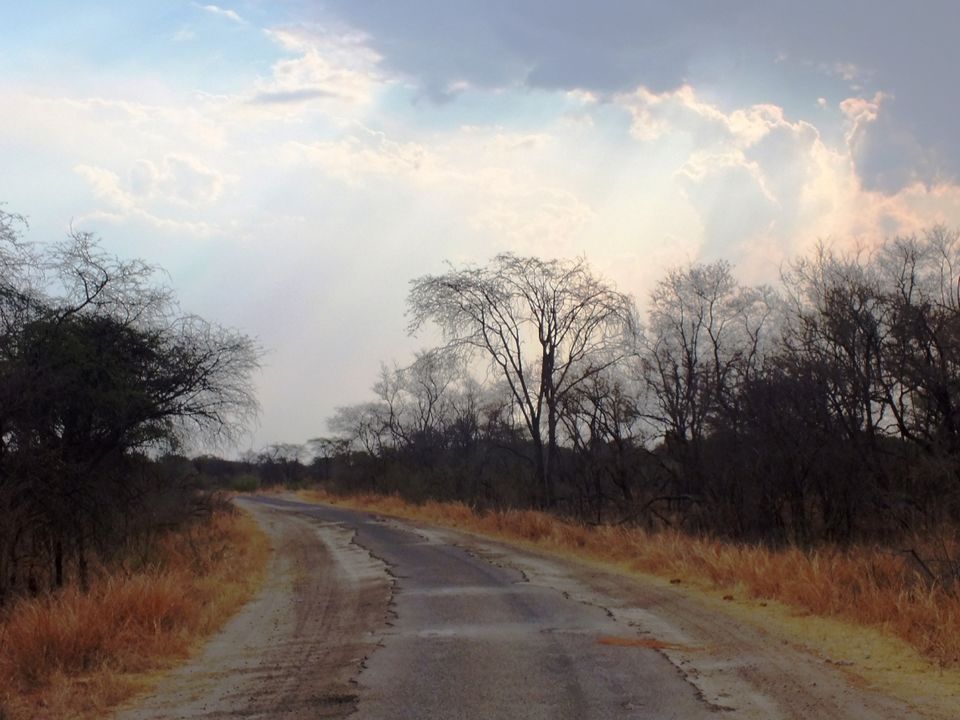
The sounds of the bush were awesome. The alarm calls of the baboons signaling the sighting of a predator. The birds screeching in chorus as they echoed the warning. The fearsome reverberation of the lion’s roar. The trumpeting of the elephants. Something that sounded like a series of distress calls. An animal’s last groans? I was unsure.
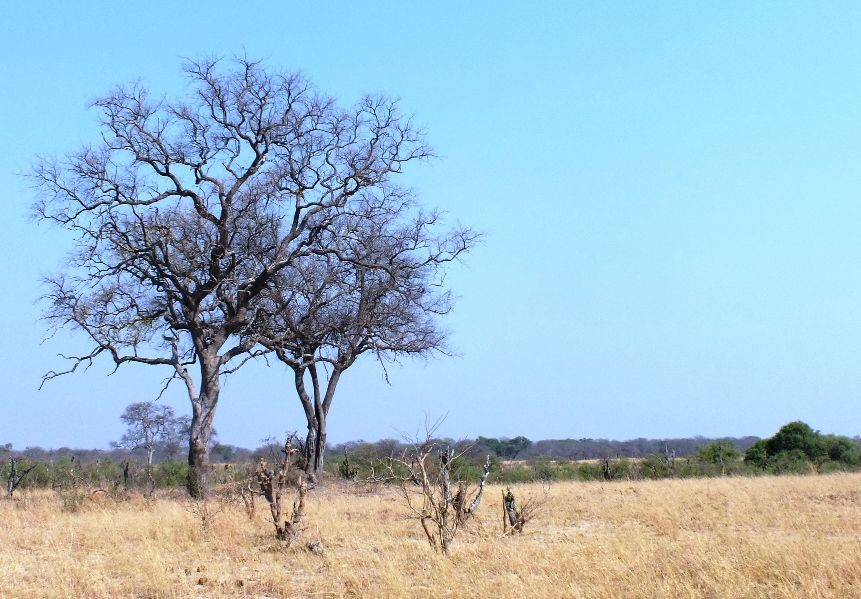
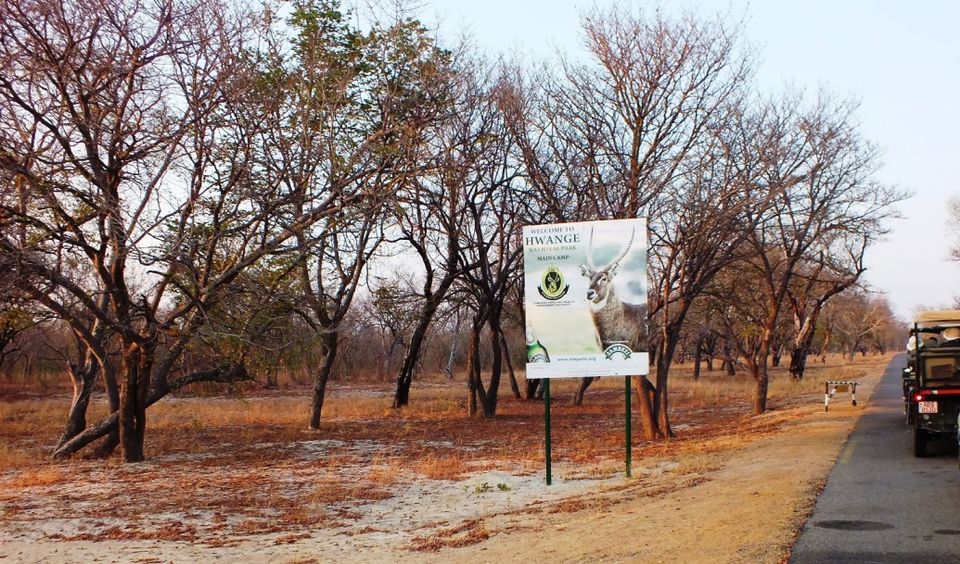
We had travelled by road from Victoria Falls to reach Hwange National Park which lies on the road to Bulawayo. For miles and miles around we saw nothing but bush, no colour but brown. A few baobab trees, with bulbous trunks and leafless branches. Gnarled trees rising up from the parched earth, their bare arms stretched upwards in a gesture of supplication. Rounded thatched huts, with mud walls and no bricks. Poverty was in evidence everywhere.
Zimbabwe is plagued by recurring drought. Large parts of the country were once covered by forests but deforestation has decimated the animal population. Amidst the Kalahari sands a few grassy pans fed by rainwater or ground water hold out a lifeline to the myriad species that call this place home.
We passed several unmanned railway crossings. The driver would stop the vehicle, look to the left, look to the right, look to the left again and finally cross. Soon we learnt to follow the same procedure. Whenever a railway track came into view all eyes involuntarily moved to the left.
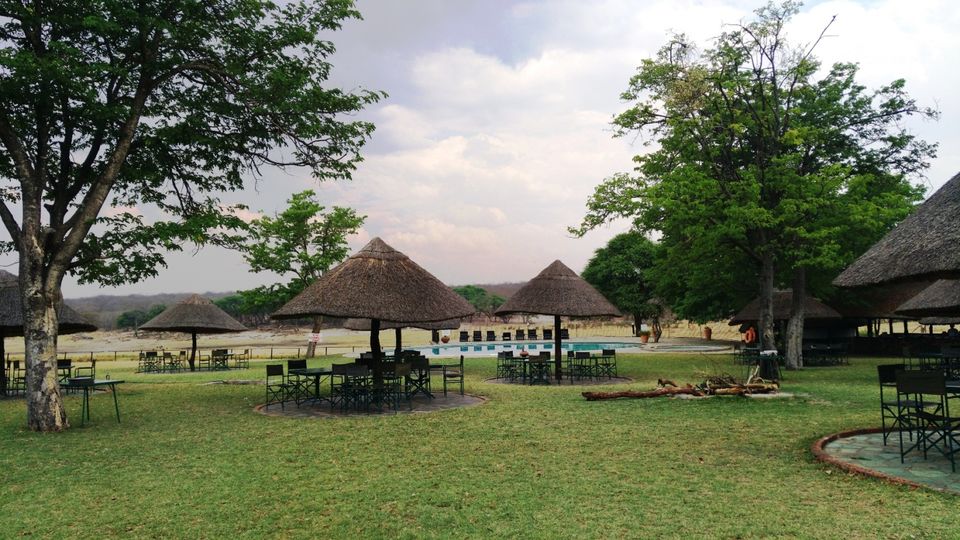
We stayed at the Hwange Safari Lodge. It is poised at the edge of a waterhole, with only a narrow ditch to keep the elephants away. All through the day and night animals came in hordes to quench their thirst. The deer, the baboons and the birds came inside the lodge, while the rest stayed out. The lions came to the waterhole but never ventured into the lodge. I wondered if they were afraid of humans.
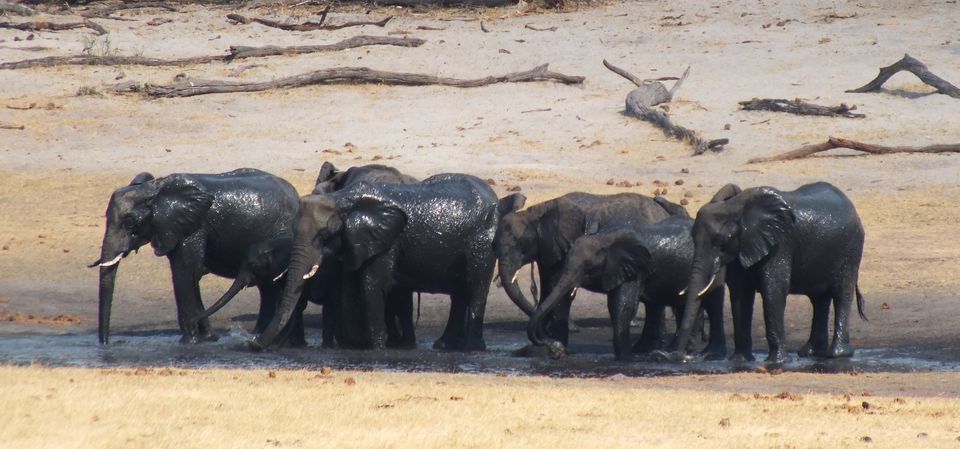
The waterhole was almost dry. I wondered how it watered so many animals. One afternoon a herd of elephants came to the waterhole. They quenched their thirst and departed. Soon another herd arrived. After drinking they had a luxurious bath, splashing water on their backs again and again. Before they were finished a third herd came along trumpeting loudly, whereupon the second herd bolted. The incoming herd drank but did not bathe. Strange are the ways of elephants.
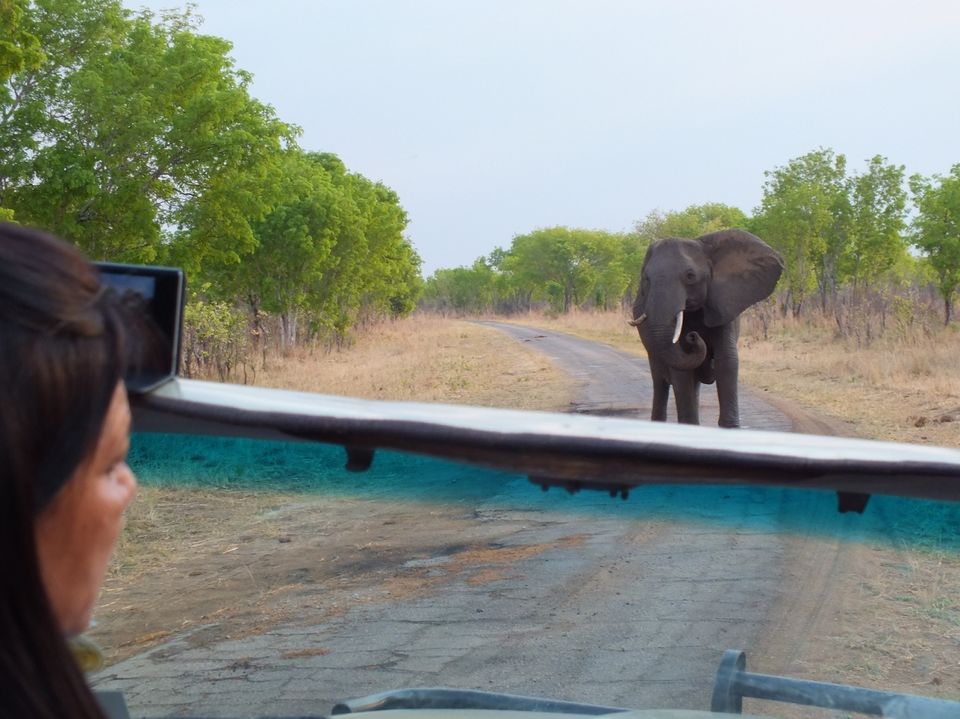
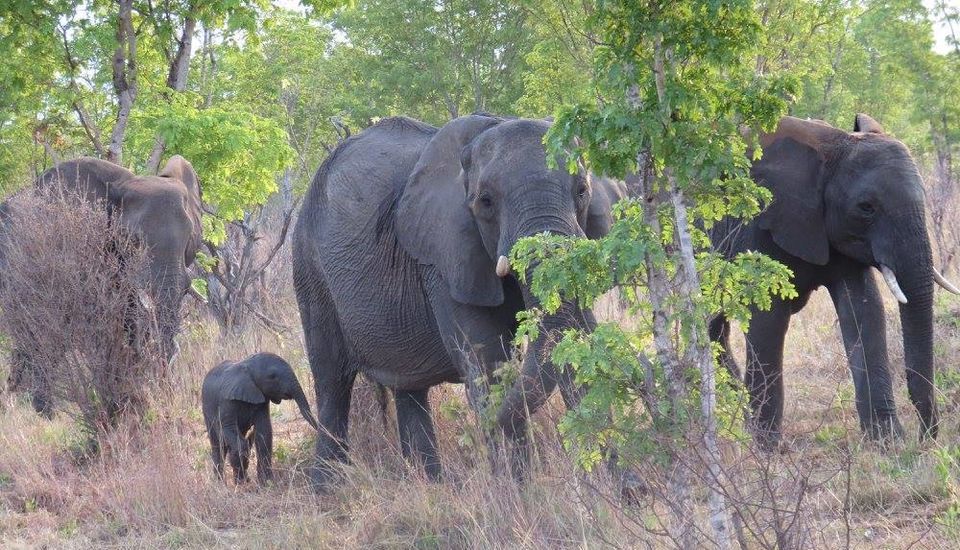
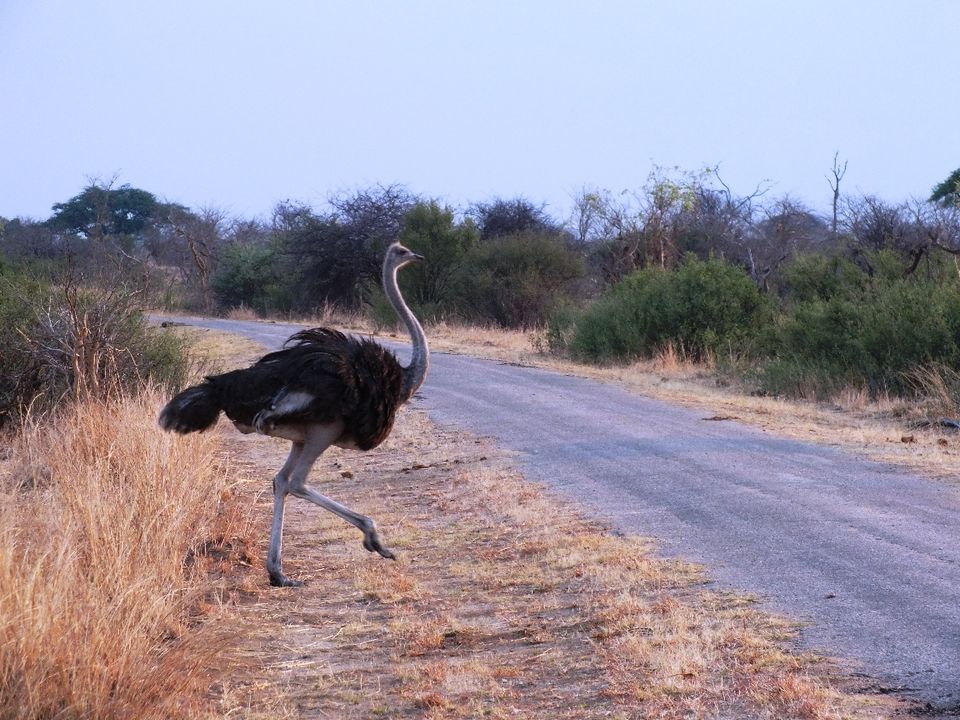
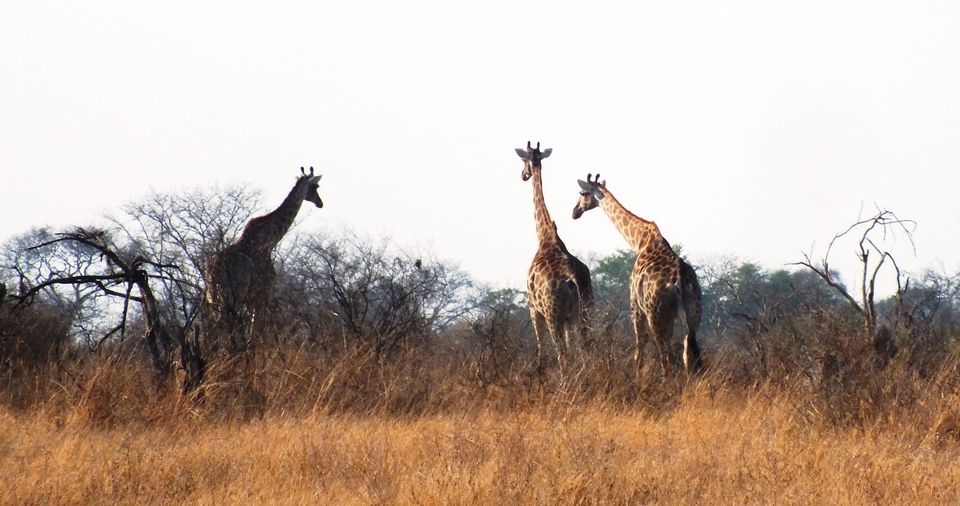
I wasn’t bold enough to take a walking tour. I had heard that accidents weren’t uncommon. Our evening safari was in an open jeep driven by Lazarus, a cheery black gentleman who doubled as a guide. A few minutes into the drive we found ourselves surrounded by elephants on all sides. There were teeny-weeny calves as well as massive tuskers. Neither the jeeps nor the camera clicks bothered them. They gave us cool glances and lumbered across the road. Lazarus invariably knew when the elephants wanted to cross the road. ‘Look, he’s nodding his head. He wants to cross,’ he would say. He would stop the jeep and sure enough in a few seconds the pachyderm would be walking across. Lazarus even knew when the kudu, zebra or the ostrich wanted to cross. It was amazing.
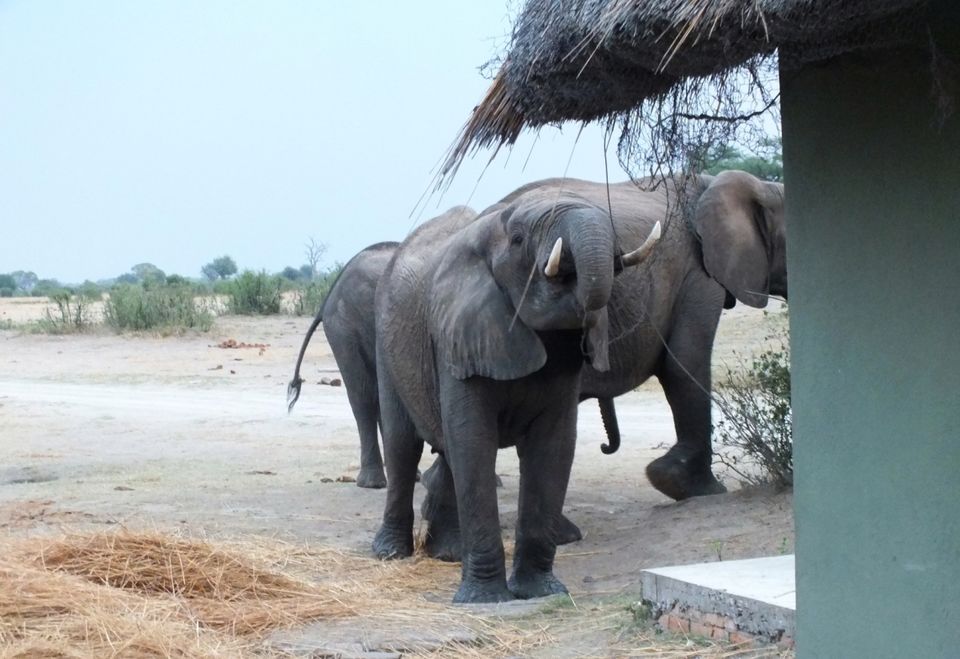
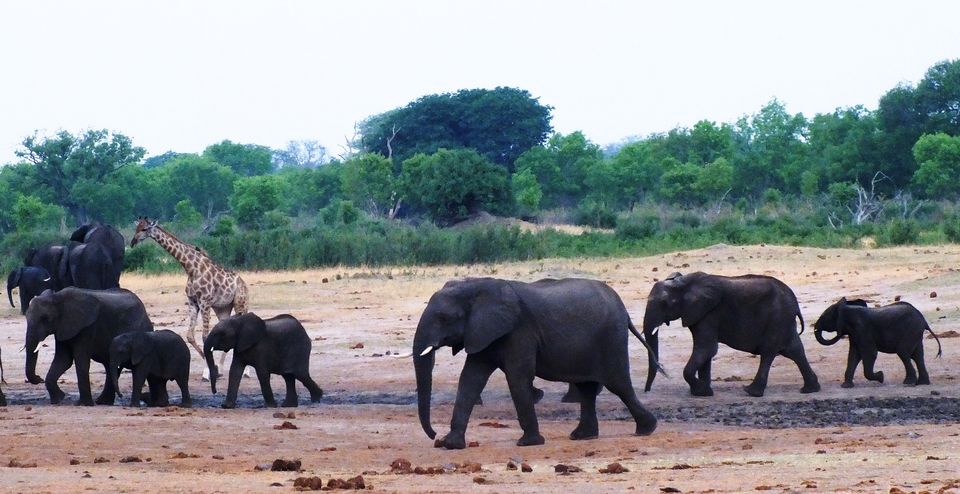
After an hour’s drive we reached a pan where a lookout tower had been erected. There were toilets too. I had barely walked out of the toilet when a sub-adult elephant came by to explore the thatched roof. Undeterred by the proximity of humans and finding the roof inedible it moved away as I watched from the safety of the lookout post with my heart in my mouth.
Lionesses positioning themselves in the bush at the edge of the pan like players in a football field. The lion hidden in the grass even farther away. Was a hunt in the offing? We weren’t lucky enough to witness one. A giraffe was drinking water with forelegs spread-eagled, striking a comic pose. He deferred to the elephants - who were there in hundreds.
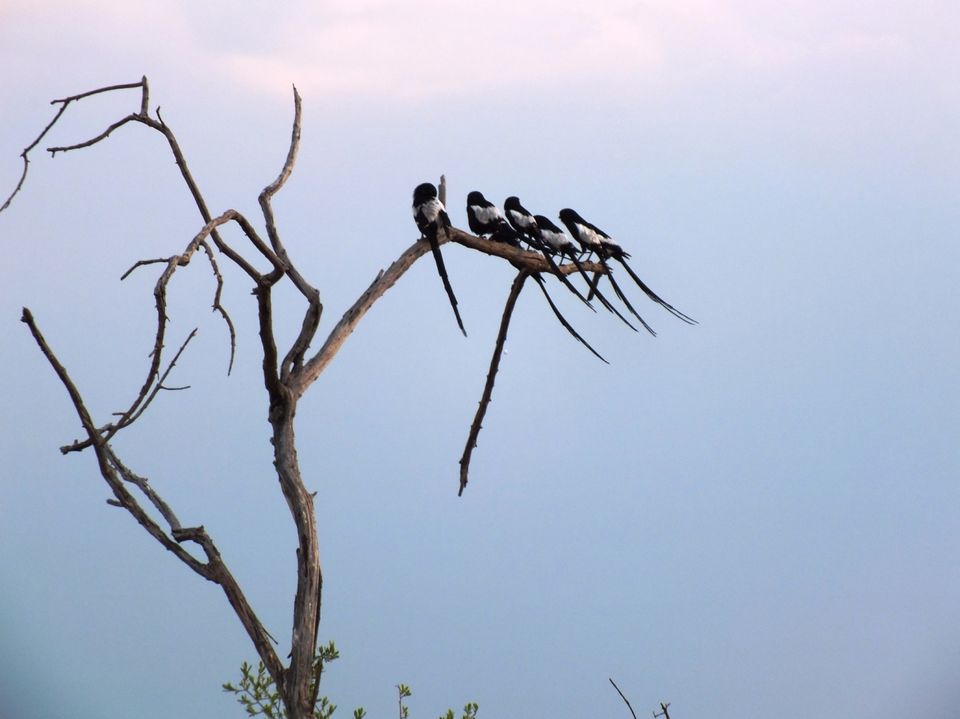
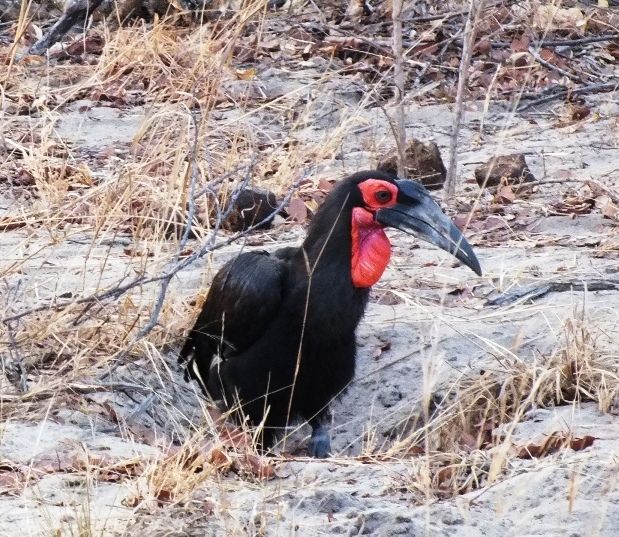
On the morning safari we spotted a jackal running off with a spring hare in its mouth. A lion rested while a herd of springbok stood grazing nearby, with one member posted as a decoy. The lion ignored them. Obviously he wasn’t hungry. We saw guinea fowl, magpies, hornbills, glossy starling, and wagtails. A lone Marshall eagle guarded his nest atop a tall tree. The black rhino failed to make an appearance though.
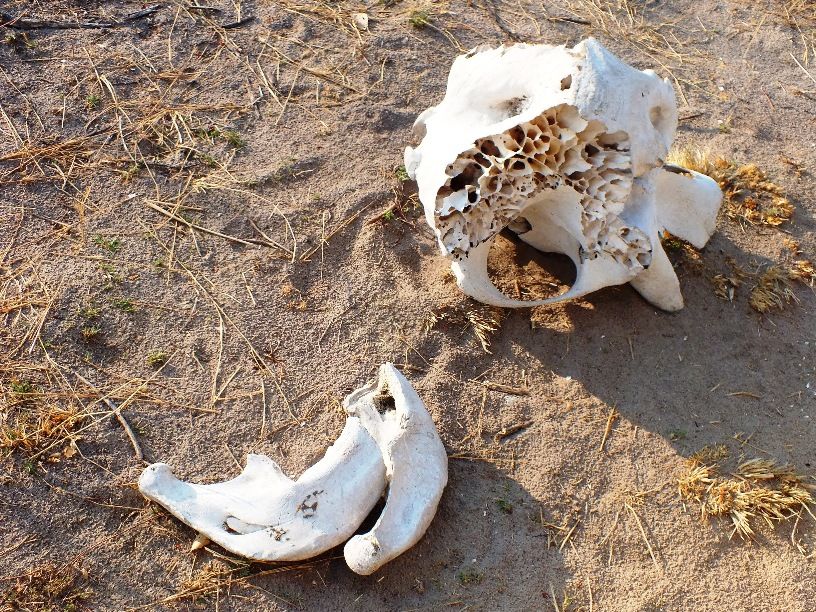
An elephant’s skull and bones lay scattered in a clearing in the bush. ‘How did it die?’ I asked Lazarus. ‘He died on his own,’ was the cryptic reply. Poachers and big game hunters are an eternal menace. I asked no further questions.
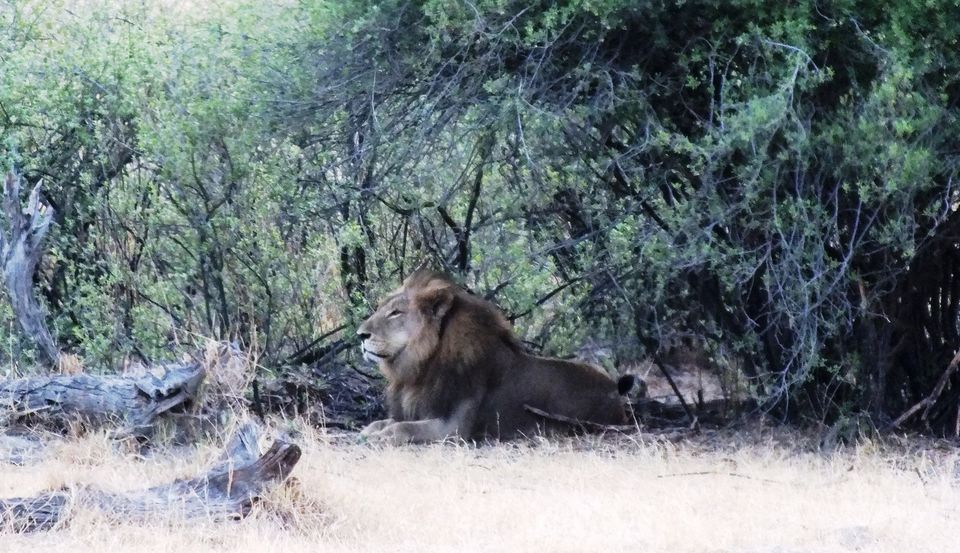
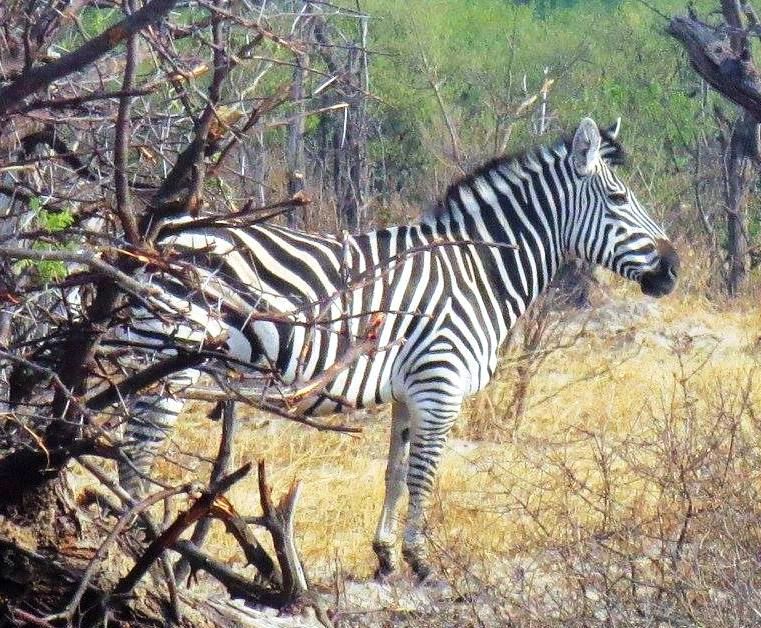
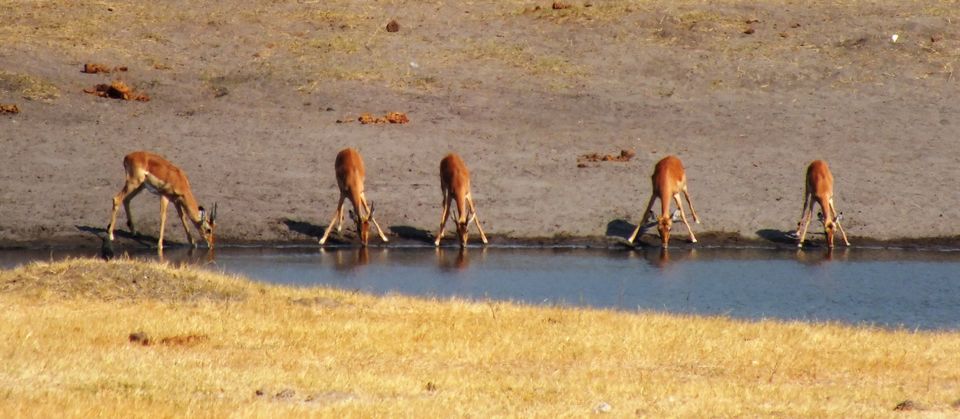
Hwange National Park is the largest of the eight game reserves in Zimbabwe and hosts over 100 mammals including the big five (lion, leopard, buffalo, rhino and elephant). It is one of the few locations where painted dogs (African wild dogs) are found in large numbers. Springbok, gemsbok, kudu, zebra, spotted hyena, brown hyena, cheetah, wildebeest, giraffe, eland, impala, warthogs, hippos and crocodiles are some of the other animals. Elephants are by far the most numerous. In addition over 400 species of birds are found here.
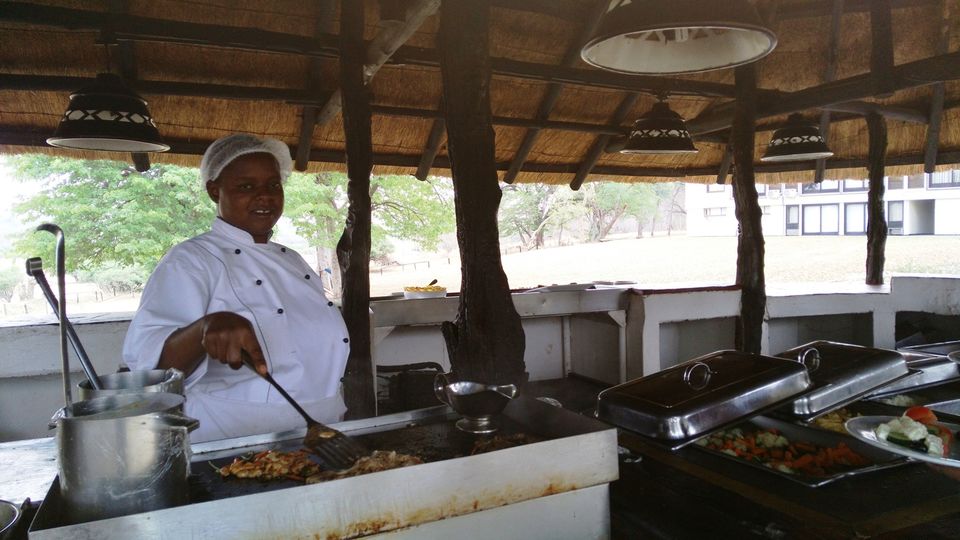
Meals at the Safari Lodge were a blend of African and European. Bush meat, impala, eland and wildebeest roasted above red hot coals on a brazier. Crocodile meat. Roasted mopane worms. Bread, cereal and juice for the vegans.
Did the mosquitoes bite me? You bet! The tse-tse fly and the ebola virus? I hope not. But the animal encounters I had in Zimbabwe made every risk worthwhile. The baboon that pounced on one of my travel buddies, the giraffe that unexpectedly bolted in front of our jeep, and the eagle that swooped down to steal the freshly roasted impala from my dinner plate - I truly loved them all.



